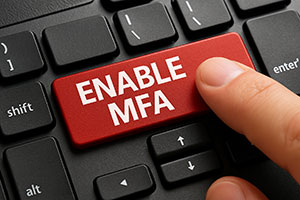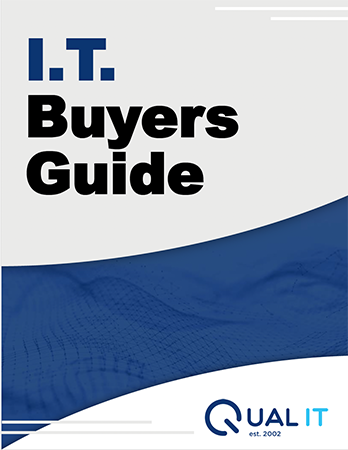 You wouldn’t run your CNC without a safety shield. You wouldn’t leave your inventory cage unlocked overnight. So why would you connect your systems without multifactor authentication (MFA)?
You wouldn’t run your CNC without a safety shield. You wouldn’t leave your inventory cage unlocked overnight. So why would you connect your systems without multifactor authentication (MFA)?
For manufacturers in Salt Lake City, MFA is your digital emergency stop button. It protects critical systems—from ERP and MES to vendor portals and design files—by adding a second layer of defense. It’s not just for big corporations anymore. If your operation uses cloud platforms, email, or remote access, MFA is non-negotiable.
MFA: The Second Lock Every Manufacturer Needs
Think of MFA like a lockout-tagout for your digital world. Your password is the padlock—but what if someone has a copy of the key? MFA ensures that even if your password gets stolen, the system won’t run unless you flip the second switch.
Multifactor authentication (also known as 2FA or two-step verification) adds a secondary check: a text code, app notification, or biometric scan. It takes just seconds to verify, but it blocks the vast majority of unauthorized access attempts.
Salt Lake City manufacturers are increasingly targeted for their valuable IP, spec files, and access to national defense or aerospace contracts. MFA helps keep that door locked.
When MFA Saves the Day on the Shop Floor
You don’t need to imagine a Hollywood-style hack. Just picture this:
- One of your machinists uses the same password at work as on a personal shopping site.
- That site gets breached. Now, someone’s trying to log into your inventory system.
- MFA kicks in. A code is required. The attacker doesn’t have it.
Boom—breach blocked.
Microsoft reports that MFA blocks over 99.2% of account compromise attempts. That’s not hype—that’s real protection in real-time.
And for those managing remote facilities or vendors? MFA sends alerts when something suspicious happens, giving you a heads-up before any damage is done.
Where Salt Lake City Manufacturers Should Enable MFA Now
Start with the systems that hold your most sensitive or critical data:
- ERP platforms (JobBOSS, Epicor, NetSuite, etc.)
- Cloud storage (OneDrive, Dropbox, Google Workspace)
- Email accounts (especially executive and admin logins)
- Remote access tools and VPNs
- Supplier portals or customer-facing platforms
Setting up MFA is simple—and most systems already support it. Use an authenticator app like Duo, Google Authenticator, or Microsoft Authenticator. Avoid relying solely on SMS codes for higher-risk accounts.
Security Without Slowing Down Production
MFA doesn’t need to be a hassle. For most users, it’s one tap or a 6-digit code. Once it’s part of the routine, your team won’t even notice—but hackers will.
At Qual IT, we help Salt Lake City manufacturers roll out MFA without disrupting the workday. We’ll guide your team, document the rollout, and integrate MFA into your broader IT strategy.
Click here to schedule your free Network Assessment and let’s make sure your digital controls are as strong as your safety protocols on the shop floor.



